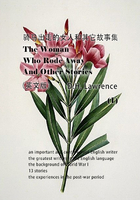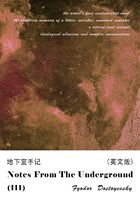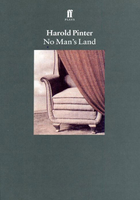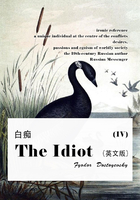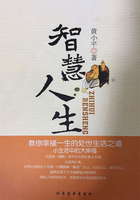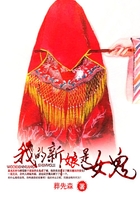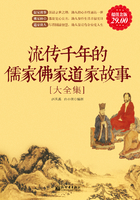THE STORY OF PRINCE AGIB
I was a king, and the son of a king; and when my father died, I succeeded to his throne, and governed my subjects with justice and beneficence. I took pleasure in sea-voyages; and my capital was on the shore of an extensive sea, interspersed with fortified and garrisoned islands, which I desired, for my amusement, to visit; I therefore embarked with a fleet of ten ships, and took with me provisions sufficient for a whole month. I proceeded twenty days, after which there arose against us a contrary wind; but at daybreak it ceased, and the sea became calm, and we arrived at an island, where we landed, and cooked some provisions and ate; after which we remained there two days. We then continued our voyage; and when twenty days more had passed, we found ourselves in strange waters, unknown to the captain, and desired the watch to look out from the mast head: so he went aloft, and when he had come down he said to the captain: "I saw, on my right hand, fish floating upon the surface of the water; and looking toward the midst of the sea, I perceived something looming in the distance, sometimes black, and sometimes white."
When the captain heard this report of the watch, he threw his turban on the deck, and plucked his beard, and said to those who were with him: "Receive warning of our destruction, which will befall all of us: not one will escape!" So saying, he began to weep; and all of us in like manner bewailed our lot. I desired him to inform us of that which the watch had seen. "O my lord," he replied, "know that we have wandered from our course since the commencement of the contrary wind that was followed in the morning by a calm, in consequence of which we remained stationary two days: from that period we have deviated from our course for twenty-one days, and we have no wind to carry us back from the fate which awaits us after this day. To-morrow we shall arrive at a mountain of black stone, called loadstone: the current is now bearing us violently toward it, and the ships will fall in pieces, and every nail in them will fly to the mountain, and adhere to it; for God hath given to the loadstone a secret property by virtue of which everything of iron is attracted toward it. On that mountain is such a quantity of iron as no one knoweth but God, whose name be exalted; for from times of old great numbers of ships have been destroyed by the influence of that mountain. There is, upon the summit of the mountain, a cupola of brass supported by ten columns, and upon the top of this is a horseman upon a horse of brass, having in his hand a brazen spear, and upon his breast suspended a tablet of lead, upon which are engraved mysterious names and talismans: and as long, O King, as this horseman remains upon the horse, so long will every ship that approaches be destroyed, with every person on board, and all the iron contained in it will cleave to the mountain: no one will be safe until the horseman shall have fallen from the horse." The captain then wept bitterly; and we felt assured that our destruction was inevitable, and every one of us bade adieu to his friend.
On the following morning we drew near to the mountain; the current carried us toward it with violence, and when the ships were almost close to it, they fell asunder, and all the nails, and everything else that was of iron, flew from them toward the loadstone. It was near the close of day when the ships fell in pieces. Some of us were drowned, and some escaped; but the greater number were drowned, and of those who saved their lives none know what became of the others, so stupefied were they by the waves and the boisterous wind. As for myself, God, whose name be exalted, spared me on account of the trouble and torment and affliction that He had predestined to befall me. I placed myself upon a plank, and the wind and waves cast it upon the mountain; and when I had landed, I found a practicable way to the summit, resembling steps cut in the rock: so I exclaimed: "In the name of God!" and offered up a prayer, and attempted the ascent, holding fast by the notches; and presently God stilled the wind, so that I arrived in safety at the summit. Rejoicing greatly in my escape, I immediately entered the cupola, and performed prayers in gratitude to God for my preservation; after which I slept beneath the cupola, and heard a voice saying to me: "O son of Khasib, when thou awakest, dig beneath thy feet, and thou wilt find a bow of brass, and three arrows of lead, whereon are engraved talismans: then take the bow and arrows and shoot at the horseman that is upon the top of the cupola, and relieve mankind from this great affliction; for when thou hast shot at the horseman he will fall into the sea; the bow will also fall, and do thou bury it in its place; and as soon as thou hast done this, the sea will swell and rise until it attains the summit of the mountain; and there will appear upon it a boat bearing a man, different from him whom thou shalt have cast down, and he will come to thee, having an oar in his hand: then do thou embark with him; but utter not the name of God; and he will convey thee in ten days to a safe sea, where, on thy arrival, thou wilt find one who will take thee to thy city. All this shall be done if thou utter not the name of God."
Awaking from my sleep, I sprang up, and did as the voice had directed. I shot at the horseman, and he fell into the sea; and the bow having fallen from my hand, I buried it: the sea then became troubled, and rose to the summit of the mountain, and when I had stood waiting there a little while, I beheld a boat in the midst of the sea, approaching me. I praised God, whose name be exalted, and when the boat came to me, I found in it a man of brass, with a tablet of lead upon his breast, engraven with names and talismans. Without uttering a word, I embarked in the boat, and the man rowed me ten successive days, after which I beheld the islands of security, whereupon, in the excess of my joy, I exclaimed: "There is no deity but God! God is most great!"—and as soon as I had done this, the man cast me out of the boat, and sank in the sea.
Being able to swim, I swam until night, when my arms and shoulders were tired, and, in this perilous situation, I repeated the profession of the faith, and gave myself up as lost; but the sea rose with the violence of the wind, and a wave like a vast castle threw me upon the land, in order to the accomplishment of the purpose of God. I ascended the shore, and after I had wrung out my clothes, and spread them upon the ground to dry, I slept; and in the morning I put on my clothes again, and, looking about to see which way I should go, I found a tract covered with trees; and when I had walked round it, I found that I was upon a small island in the midst of the sea; upon which I said within myself: "Every time that I escape from one calamity I fall into another that is worse:" but while I was reflecting upon my unfortunate case, and wishing for death, I beheld a vessel bearing a number of men. I arose immediately, and climbed into a tree; and lo, the vessel came to the shore, and there landed from it ten black slaves bearing axes. They proceeded to the middle of the island, and, digging up the earth, uncovered and lifted up a trap-door, after which they returned to the vessel, and brought from it bread and flour, and clarified butter and honey, and sheep and everything that the wants of an inhabitant would require, continuing to pass backward and forward between the vessel and the trap-door, bringing loads from the former, and entering the latter, until they had removed all the stores from the ship. They then came out of the vessel with various clothes of the most beautiful description, and in the midst of them was an old sheikh, enfeebled and wasted by extreme age, leading by the hand a young man cast in the mould of graceful symmetry, and invested with such perfect beauty as deserved to be a subject for proverbs. He was like a fresh and slender twig, enchanting and captivating every heart by his elegant form. The party proceeded to the trap-door, and, entering it, became concealed from my eyes.
They remained beneath about two hours, or more; after which, the sheikh and the slaves came out; but the youth came not with them; and they replaced the earth, and embarked and set sail. Soon after, I descended from the tree, and went to the excavation. I removed the earth, and, entering the aperture, saw a flight of wooden steps, which I descended; and, at the bottom, I beheld a handsome dwelling-place, furnished with a variety of silken carpets; and there was the youth, sitting upon a high mattress, with sweet-smelling flowers and fruits placed before him. On seeing me, his countenance became pale; but I saluted him, and said: "Let thy mind be composed, O my master: thou hast nothing to fear; for I am a man, and the son of a king, like thyself: fate hath impelled me to thee, that I may cheer thee in thy solitude." The youth, when he heard me thus address him, and was convinced that I was one of his own species, rejoiced exceedingly at my arrival, his colour returned, and, desiring me to approach him, he said: "O my brother, my story is wonderful: my father is a jeweller; he had slaves who made voyages by his orders, for the purposes of commerce, and he had dealings with kings; but he had never been blest with a son; and he dreamt that he was soon to have a son, but one whose life would be short; and he awoke sorrowful. Shortly after, in accordance with the decrees of God, my mother gave birth to me; and my father was greatly rejoiced: the astrologers, however, came to him, and said: Thy son will live fifteen years: his fate is intimated by the fact that there is in the sea a mountain called the Mountain of Loadstone, whereon is a horseman on a horse of brass, on the former of which is a tablet of lead suspended to his neck; and when the horseman shall be thrown down from his horse, thy son will be slain: the person who is to slay him is he who will throw down the horseman, and his name is King Agib, the son of King Khasib. My father was greatly afflicted at this announcement; and when he had reared me until I had nearly attained the age of fifteen years, the astrologers came again, and informed him that the horseman had fallen into the sea, and that it had been thrown down by King Agib, the son of King Khasib; on hearing which, he prepared for me this dwelling, and here left me to remain until the completion of the term, of which there now remain ten days. All this he did from fear lest King Agib should kill me."
When I heard this, I was filled with wonder, and said within myself: "I am King Agib, the son of King Khasib, and it was I who threw down the horseman; but, by Allah, I will neither kill him nor do him any injury." Then said I to the youth: "Far from thee be both destruction and harm, if it be the will of God: thou hast nothing to fear: I will remain with thee to serve thee, and will go forth with thee to thy father, and beg of him to send me back to my country, for the which he will obtain a reward." The youth rejoiced at my words, and I sat and conversed with him until night, when I spread his bed for him, and covered him, and slept near to his side. And in the morning I brought him water, and he washed his face, and said to me: "May God requite thee for me with every blessing. If I escape from King Agib, I will make my father reward thee with abundant favours." "Never," I replied, "may the day arrive that would bring thee misfortune!" I then placed before him some refreshments, and after we had eaten together, we passed the day conversing with the utmost cheerfulness.
I continued to serve him for nine days; and on the tenth day the youth rejoiced at finding himself in safety, and said to me: "O my brother, I wish that thou wouldst in thy kindness warm for me some water, that I may wash myself and change my clothes; for I have smelt the odour of escape from death, in consequence of thy assistance." "With pleasure," I replied; and I arose, and warmed the water; after which, he entered a place concealed from my view, and, having washed himself and changed his clothes, laid himself upon the mattress to rest after his bath. He then said to me: "Cut up for me, O my brother, a water-melon, and mix its juice with some sugar:" so I arose, and, taking a melon, brought it upon a plate, and said to him; "Knowest thou, O my master, where is the knife?" "See, here it is," he answered, "upon the shelf over my head." I sprang up hastily, and took it from its sheath, and as I was drawing back, my foot slipped, as God had decreed, and I fell upon the youth, grasping in my hand the knife, which entered his body, and he died instantly. When I perceived that he was dead, and that I had killed him, I uttered a loud shriek, and beat my face, and rent my clothes: saying: "This is, indeed, a calamity! O my Lord, I implore thy pardon, and declare to Thee my innocence of his death! Would that I had died before him!"
With these reflections I ascended the steps, and, having replaced the trap-door, returned to my first station, and looked over the sea, where I saw the vessel that had come before, approaching, and cleaving the waves in its rapid course. Upon this I said within myself: "Now will the men come forth from the vessel, and find the youth slain, and they will slay me also:" so I climbed into a tree, and concealed myself among its leaves, and sat there till the vessel arrived and cast anchor, when the slaves landed with the old sheikh, the father of the youth, and went to the place, and removed the earth. They were surprised at finding it moist, and, when they had descended the steps, they discovered the youth lying on his back, exhibiting a face beaming with beauty, though dead, and clad in white and clean clothing, with the knife remaining in his body. They all wept at the sight, and the father fell down in a swoon, which lasted so long that the slaves thought he was dead. At length, however, he recovered, and came out with the slaves, who had wrapped the body of the youth in his clothes. They then took back all that was in the subterranean dwelling to the vessel, and departed.
I remained, by day hiding myself in a tree, and at night walking about the open part of the island. Thus I continued for the space of two months; and I perceived that, on the western side of the island, the water of the sea every day retired, until, after three months, the land that had been beneath it became dry. Rejoicing at this, and feeling confident now in my escape, I traversed this dry tract, and arrived at an expanse of sand; whereupon I emboldened myself, and crossed it. I then saw in the distance an appearance of fire, and, advancing toward it, found it to be a palace, overlaid with plates of red copper, which, reflecting the rays of the sun, seemed from a distance to be fire: and when I drew near to it, reflecting upon this sight, there approached me an old sheikh, accompanied by ten young men who were all blind of one eye, at which I was extremely surprised. As soon as they saw me, they saluted me, and asked me my story, which I related to them from first to last; and they were filled with wonder. They then conducted me into the palace, where I saw ten benches, upon each of which was a mattress covered with a blue stuff; and each of the young men seated himself upon one of these benches, while the sheikh took his place upon a smaller one; after which they said to me: "Sit down, O young man, and ask no question respecting our condition, nor respecting our being blind of one eye." Then the sheikh arose, and brought to each of them some food, and the same to me also; and next he brought to each of us some wine: and after we had eaten, we sat drinking together until the time for sleep, when the young men said to the sheikh: "Bring to us our accustomed supply"—upon which the sheikh arose, and entered a closet, from which he brought, upon his head, ten covered trays. Placing these upon the floor, he lighted ten candles, and stuck one of them upon each tray; and, having done this, he removed the covers, and there appeared beneath them ashes mixed with pounded charcoal. The young men then tucked up their sleeves above the elbow, and blackened their faces, and slapped their cheeks, exclaiming: "We were reposing at our ease, and our impertinent curiosity suffered us not to remain so!" Thus they did until the morning, when the sheikh brought them some hot water, and they washed their faces, and put on other clothes.
On witnessing this conduct, my reason was confounded, my heart was so troubled that I forgot my own misfortunes, and I asked them the cause of their strange behaviour; upon which they looked toward me, and said: "O young man, ask not respecting that which doth not concern thee; but be silent; for in silence is security from error." I remained with them a whole month, during which, every night they did the same, and at length I said to them: "I conjure you by Allah to remove this disquiet from my mind, and to inform me of the cause of your acting in this manner, and of your exclaiming; 'We were reposing at our ease, and our impertinent curiosity suffered us not to remain so!' if ye inform me not, I will leave you, and go my way." On hearing these words, they replied: "We have not concealed this affair from thee but in our concern for thy welfare, lest thou shouldst become like us, and the same affliction that hath befallen us happen also to thee." I said, however: "Ye must positively inform me of this matter." "We give thee good advice," said they, "and do thou receive it, and ask us not respecting our case; otherwise thou wilt become blind of one eye, like us"—but I still persisted in my request; whereupon they said: "O young man, if this befall thee, know that thou wilt be banished from our company." They then all arose, and, taking a ram, slaughtered and skinned it, and said to me: "Take this knife with thee, and introduce thyself into the skin of the ram, and we will sew thee up in it, and go away; whereupon a bird called the roc will come to thee, and, taking thee up by its talons, will fly away with thee, and set thee down upon a mountain: then cut open the skin with this knife, and get out, and the bird will fly away. Thou must arise, as soon as it hath gone, and journey for half a day, and thou wilt see before thee a lofty palace, encased with red gold, set with various precious stones such as emeralds and rubies; and if thou enter it thy case will be as ours; for our entrance into that palace was the cause of our being blind of one eye; and if one of us would relate to thee all that hath befallen him, his story would be too long for thee to hear."
They then sewed me up in the skin, and entered their palace; and soon after, there came an enormous white bird, which seized me, and flew away with me, and set me down upon the mountain; whereupon I cut open the skin, and got out; and the bird, as soon as it saw me, flew away. I rose up quickly, and proceeded toward the palace, which I found to be as they had described it to me; and when I had entered it, I beheld, at the upper end of a saloon, forty young damsels, beautiful as so many moons, and magnificently attired, who, as soon as they saw me, exclaimed: "Welcome! Welcome! O our master and our lord! We have been for a month expecting thee. Praise be to God who hath blessed us with one who is worthy of us, and one of whom we are worthy!" After having thus greeted me, they seated me upon a mattress, and said; "Thou art from this day our master and prince, and we are thy handmaids, and entirely under thy authority." They then brought to me some refreshments, and, when I had eaten and drunk, they sat and conversed with me, full of joy and happiness. So lovely were these ladies, that even a devotee, if he saw them, would gladly consent to be their servant, and to comply with all that they would desire. At the approach of night they all assembled around me, and placed before me a table of fresh and dried fruits, with other delicacies that the tongue cannot describe, and wine; and one began to sing, while another played upon the lute. The wine-cups circulated among us, and joy overcame me to such a degree as to obliterate from my mind every earthly care, and make me exclaim: "This is indeed a delightful life!" I passed a night of such enjoyment as I had never before experienced; and on the morrow I entered the bath; and, after I had washed myself, they brought me a suit of the richest clothing, and we again sat down to a repast.
In this manner I lived with them a whole year; but on the first day of the new year, they seated themselves around me, and began to weep, and bade me farewell, clinging to my skirts. "What calamity hath befallen you?" said I. "Ye are breaking my heart." They answered: "Would that we had never known thee; for we have associated with many men, but have seen none like thee. May God, therefore, not deprive us of thy company." And they wept afresh. I said to them: "I wish that you would acquaint me with the cause of this weeping." "Thou," they replied, "art the cause; yet now, if thou wilt attend to what we tell thee, we shall never be parted; but if thou act contrary to it, we are separated from this time; and our hearts whisper to us that thou wilt not regard our warning." "Inform me," said I, "and I will attend to your directions." And they replied: "If then thou wouldst inquire respecting our history, know that we are the daughters of kings: for many years it hath been our custom to assemble here, and every year we absent ourselves during a period of forty days; then returning, we indulge ourselves for a year in feasting and drinking. This is our usual practice; and now we fear that thou wilt disregard our directions when we are absent from thee. We deliver to thee the keys of the palace, which are a hundred in number, belonging to a hundred closets. Open each of these, and amuse thyself, and eat and drink, and refresh thyself, excepting the closet that hath a door of red gold; for if thou open this, the consequence will be a separation between us and thee. We conjure thee, therefore, to observe our direction, and to be patient during this period." Upon hearing this, I swore to them that I would never open the closet to which they alluded; and they departed, urging me to be faithful to my promise.
I remained alone in the palace, and at the approach of evening I opened the first closet, and, entering it, found a mansion like paradise, with a garden containing green trees loaded with ripe fruits, abounding with singing birds, and watered by copious streams. My heart was soothed by the sight, and I wandered among the trees, scenting the fragrance of the flowers, and listening to the warbling of the birds as they sang the praises of the One, the Almighty. After admiring the mingled colours of the apple resembling the hue upon the cheek of the beloved maid and the sallow countenance of the perplexed and timid lover, the sweet-smelling quince diffusing an odour like musk and ambergris, and the plum shining as the ruby, I retired from this place, and, having locked the door, opened that of the next closet, within which I beheld a spacious tract planted with numerous palm-trees, and watered by a river flowing among rose-trees, and jasmine, and marjoram, and eglantine, and narcissus, and gilliflower, the odours of which, diffused in every direction by the wind, inspired me with the utmost delight. I locked again the door of the second closet, and opened that of the third. Within this I found a large saloon, paved with marbles of various colours, and with costly minerals and precious gems, and containing cages constructed of sandal and aloes-wood with singing birds within them, and others upon the branches of trees which were planted there. My heart was charmed, my trouble was dissipated, and I slept there until the morning. I then opened the door of the fourth closet, and within this door I found a great building in which were forty closets with open doors; and entering these, I beheld pearls, and rubies, and chrysolites, and emeralds, and other precious jewels such as the tongue cannot describe. I was astonished at the sight, and said: "Such things as these, I imagine, are not found in the treasury of any king. I am now the King of my age, and all these treasures, through the goodness of God, are mine."
Thus I continued to amuse myself, passing from one place to another, until thirty-nine days had elapsed, and I had opened the doors of all the closets excepting that which they had forbidden me to open. My heart was then disturbed by curiosity respecting this hundredth closet, and the Devil, in order to plunge me into misery, induced me to open it. I had not patience to abstain, though there remained of the appointed period only one day: so I approached the closet, and opened the door; and when I had entered, I perceived a fragrant odour, such as I had never before smelt, which intoxicated me so that I fell down insensible, and remained some time in this state: but at length recovering, I fortified my heart, and proceeded. I found the floor overspread with saffron, and the place illuminated by golden lamps and by candles, which diffused the odours of musk and ambergris. I saw also a black horse, of the hue of the darkest night, before which was a manger of white crystal filled with cleansed sesame, and another, similar to it, containing rose-water infused with musk: he was saddled and bridled, and his saddle was of red gold. Wondering at the sight of him, I said within myself: "This must be an animal of extraordinary qualities;" and, seduced by the Devil, I led him out, and mounted him; but he moved not from his place. I kicked him with my heel; but still he moved not: so I took a switch and struck him with it; and as soon as he felt the blow he uttered a sound like thunder, and, expanding a pair of wings, soared with me to an immense height through the air, and then alighted upon the roof of another palace, where he threw me from his back, and, by a violent blow with his tail upon my face, struck out my eye, and left me.
Thus it was I became blind of one eye. I then recollected the predictions of the ten young men. The horse again took wing, and soon disappeared. I got up much vexed at the misfortune I had brought upon myself. I walked upon the terrace, covering my eye with one of my hands, for it pained me exceedingly, and then descended, and entered into a hall. I soon discovered by the ten benches in a circle, and the eleventh in the middle, smaller than the rest, that I was in the castle whence I had been carried by the roc.
The ten young men were not in the hall when I entered; but came in soon after, attended by the sheikh. They seemed not at all surprised to see me, nor at the loss of my eye; but said: "We are sorry that we cannot congratulate you on your return, as we could wish; but we are not the cause of your misfortune." "I should do you wrong," I replied, "to lay it to your charge; I have only myself to accuse." "If," said they, "it be a subject of consolation to the afflicted to know that others share their sufferings, you have in us this alleviation of your misfortune. All that has happened to you we have also endured; we each of us tasted the same pleasures during a year; and we had still continued to enjoy them, had we not opened the golden door, when the princesses were absent. You have been no wiser than we, and have incurred the same punishment. We would gladly receive you into our company, to join with us in the penance to which we are bound, and the duration of which we know not. But we have already stated to you the reasons that render this impossible: depart, therefore, and proceed to the court of Bagdad, where you will meet with the person who is to decide your destiny." After they had explained to me the road I was to travel, I departed from them, with mournful heart and weeping eye, and, God having decreed me a safe journey hither, I arrived at Bagdad, after I had shaved my beard, and become a mendicant. Praise be to God, whose name be exalted, and whose purposes concerning me are as yet hid in darkness.

